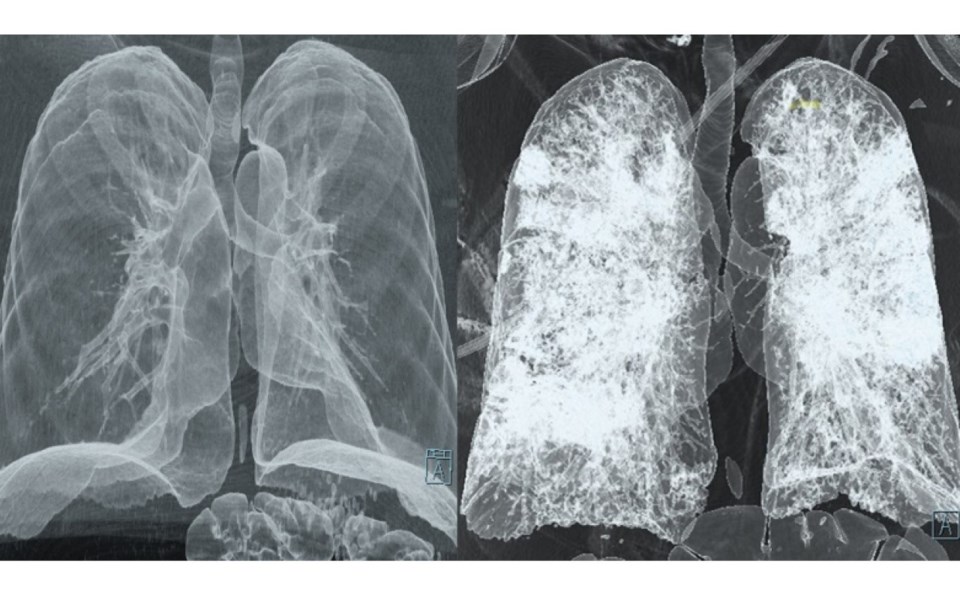Vancouver-based radiologists are at the helm of an international study that aims to better predict the presence of COVID-19 using CT scans.
As part of the project, thousands of CT scans from COVID19 patients around the world – including Canada, the Middle East, Italy and South Korea – are being collected, analyzed and labelled by radiologists, fellows, residents and medical students at the University of British Columbia (UBC).
The study is spearheaded by radiologists from Vancouver General Hospital (VGH), along with UBC, the Vancouver Coastal Health Research Institute, and research lab and biotech company SapienML.
Information collected from the scans will form the basis for an open source artificial intelligence (AI) model, which will be able to predict the presence, severity and complications of COVID-19 on CT scans.
"We know the lungs of COVID-19 patients are white and hazy, like a white-out or blizzard," said Dr. Savvas Nicolaou, director of emergency and trauma radiology at VGH, who is heading the project with Dr. William Parker, a radiology resident at VGH and UBC.
"Currently, we can't predict disease severity and its clinical impact in different patient populations. We're confident this new tool will help us do that," said Nicolaou.
Nicolaou said health-care workers have seen patients in emergency who have non-typical symptoms, such as severe abdominal pain and stroke and acute chest pain. He said that, upon reviewing those patients' CT scans for those conditions, the "tell-tale haziness" of COVID-19 was seen in their lungs.
Clinical data will also be integrated into the AI model to help support and supplement existing tools to improve patient care. For example, the model could help physicians determine whether individuals are best treated at home or whether they may require hospitalization and/or ventilation.
It could also help flag individuals who may ultimately develop permanent lung damage or fibrosis.
"The model will also assist in detecting similarities and differences in variations of patterns across different cultural and ethnic groups," said Dr. Kendall Ho, VGH emergency physician and academic director of the UBC Cloud Innovation Centre. "(It will also) help us understand early and late stages of patters of disease."
Once developed, the new AI model will be piloted at VGH, with an aim of utilizing it in routine diagnostic procedures to improve the accuracy of COVID-19 diagnostics.
"Everyone in B.C. is doing what it takes to protect our families, our elders, our health-care workers and our communities," said Minister of Health Adrian Dix.
"I'm proud of the work that physicians and researchers in British Columbia are leading in our global fight against COVID-19."
Funding for the project is provided by the UBC Community Health and Wellbeing Cloud Innovation Centre, powered by Amazon Web Services (AWS) as well as the AWS Diagnostic Development Initiative.
This article originally appeared here.




